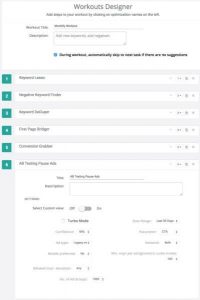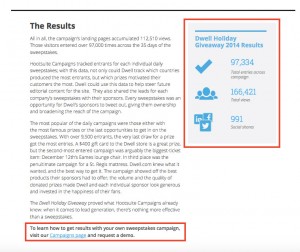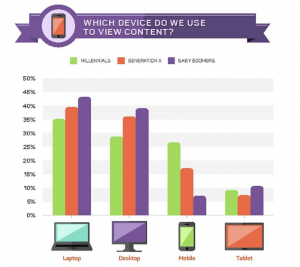— May 3, 2019
Loans backed by the Small Business Administration are well-known for being some of the best deals in small business lending. They’re also notorious for having stringent qualifications and an extended application process.
An SBA loan is not something you apply for on a whim. Business owners should expect a process lasting months—and that’s not including time spent collecting and organizing all of the documents and statements you’ll need to appease SBA underwriters.
If you qualify for an SBA loan, however, and have funding needs that aren’t immediate (because, as mentioned, this is going to take some time), it’s probably worth your time and effort to go through the process.
Business owners who want funding tomorrow should explore online lenders who can often process loans quickly. Business owners with low personal and business credit scores, no collateral, and/or have not been in business for long will also need to find another option.
So, assuming you meet all the requirements, here are the seven reasons why a Small Business Administration loan is worth the effort:
Low interest rates
The exact interest rate of your SBA loan will vary depending on what SBA program you borrow from, how much you borrow, and what your repayment terms will be. That being said, you’re nearly guaranteed to get one of the lowest rates in small business lending.
Current SBA loan rates range from below 4.39% to no higher than 13%. They can be broken down as follows:
- 7(a) Loans (for all working capital needs): 7.75% – 10.25%
- CDC/504 Loans (for real estate, equipment, and other fixed assets): 4.39% – 6.67%
- Microloans (for new small businesses): 6.5% – 13%
Generous repayment terms
Often in small business lending, you’ll find funding products that require weekly, or even daily, payments on the loan.
That’s not the case with SBA loans. Repayment schedules are monthly, and extend for years, making them the longest in small business lending.
Depending on the type of loan you receive, you’ll have up to seven years to repay working capital loans, 10 years for equipment loans, and 25 years for commercial real estate loans.
A wide range of uses
Some forms of small business financing limit the scope of how you can use your funds. For example, equipment financing comes from lenders who specifically give you the money to buy a needed piece of equipment or machinery.
Across the various SBA loan products, however, you’ll find you can use your federally backed loan for just about anything. For the 7(a) program, qualified uses include:
- Short and long-term capital needs
- Purchasing equipment
- Purchasing real estate
- Construction or renovation projects
- Acquiring an existing business
- Refinancing existing debt (under some circumstances)
You can borrow up to $ 5 million under the 7(a) program for these business needs. If you’re seeking a larger loan for a major real estate loan project—up to $ 25 million—a CDC/504 loan from the SBA is your best bet.
Possibilities for established or new business owners
As mentioned above, there are different SBA loan types. Generally, if you need large amounts of capital, you’ll need to be an established business—in operation for at least several years—in order to qualify for a 7(a) or CDC/504 loan.
Even new business owners, however, have SBA loan options. Microloans of up to $ 50,000 (and as little as $ 500) are available to new or especially small business owners who need a financial kickstart—including help securing inventory, buying equipment, or starting up.
Though the interest rates on SBA Microloans are higher than for larger loans, they are still likely to beat financing from private microlenders.
Access to training and mentorship
Regardless of whether you have an SBA-backed loan, the agency has lots of counseling, training, and mentorship opportunities available to small business owners, through partnerships with Small Business Development Centers, Women’s Business Centers, Veterans Business Centers, SCORE chapters, and more.
Those with an SBA loan, however, will receive additional education and help. It’s in the SBA’s interest that you successfully repay your loan to your lender—since the SBA will have guaranteed a large portion of it—and so they’ll devote further resources towards ensuring your success.
It may be your only option for affordable funding
The world of small business lending is risky. If you’ve gone to your bank or another local private lender seeking a loan—even with strong financials and business history—you may have be turned down.
That’s because banks want to lend to only the biggest and most established and likely to succeed businesses they can find. That’s part of the goal of SBA loans: They mitigate the risk of lending to a small business and make it more likely for those businesses to get approved.
In fact, the SBA has a “Credit Elsewhere” rule that stipulates business owners need to seek financing elsewhere, and get rejected, before being approved for an SBA loan.
Therefore, your path to affordable financing may only be through the SBA.
Clarifying application process
Let’s face it–throughout the process of running a business, you may have let certain important bureaucratic tasks slip through the cracks. Do you have your business debt schedule handy? How about a clear look at your financial situation through documents like a profit and loss statement or balance sheets? Do you even have a written business plan?
You’ll need all of that and more in order to be taken seriously during the SBA loan application process. The exact list of documents varies depending on your loan, but suffice to say that you’ll need to collect a bevy of statements that show the state, history, and projected future of your business.
You may not see the need for a detailed business plan at the moment, but an application process that forces you to clarify your business’s vision and current trajectory is a positive step for the future of your company.
***
Applying for an SBA loan is a trying, arduous process. It’s also, if successful, an incredible boon to your business and a good sign: You have the co-sign and support of the federal government, which bodes well for your future. If you’ve identified an opportunity that requires debt financing, staking out a vision that involves applying for an SBA loan is an excellent first step.
Business & Finance Articles on Business 2 Community
(58)






